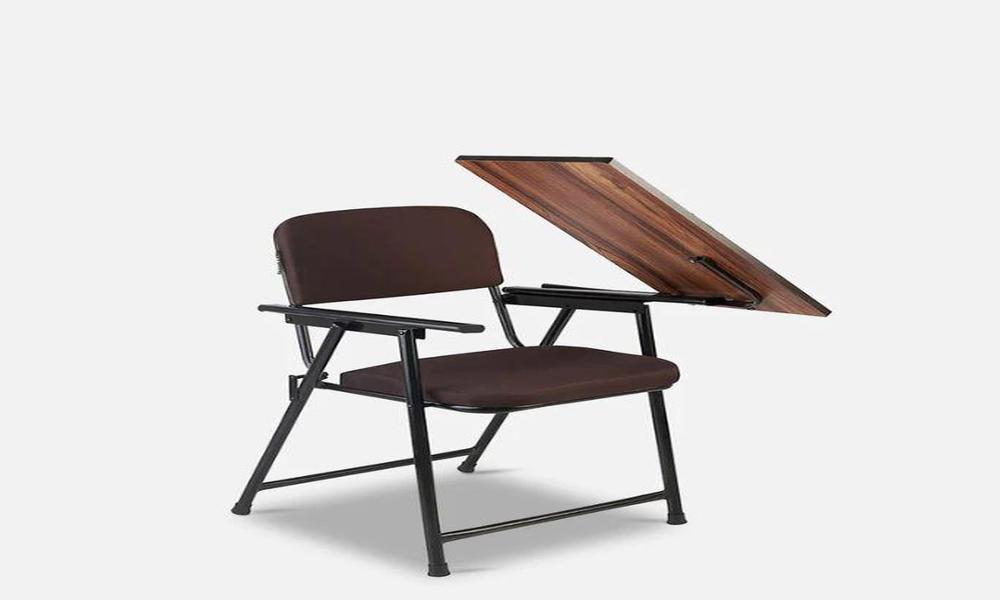There are a few reasons why some people may struggle with study chairs:
Lack of awareness: Many people may not be aware of the importance of having a comfortable and ergonomic study chair, and may simply use whatever chair is available to them. This can lead to discomfort and pain, which can make it difficult to focus and learn effectively.
Limited options: Some people may not have access to a variety of study chairs, either due to financial constraints or limited space. This can make it difficult to find a chair that is the right size and shape for their body.
Physical limitations: People with physical disabilities or chronic pain may find it difficult to find a study chair that accommodates their needs. In these cases, specialized chairs or modifications may be necessary.
Poor posture: Even with a comfortable study chair, poor posture can still lead to discomfort and pain. Some people may need to work on their posture and ergonomics to use a study chair effectively.
Warning Signs of Your STUDY CHAIR Demise
The chair wobbles or tilts to one side: This could indicate a loose or broken leg, which may eventually cause the chair to collapse.
The seat cushion is worn or flattened: Over time, the padding in the seat cushion can wear down, making the chair uncomfortable and unsupportive.
The fabric or upholstery is ripped or torn: Tears or holes in the fabric can make the chair look unsightly and compromise its structural integrity.
The armrests are loose or wobbly: Loose or wobbly armrests can make it difficult to sit comfortably and may eventually detach from the chair.
The backrest is bent or cracked: A bent or cracked backrest can make the chair unstable and unsafe to sit in.
The chair creaks or squeaks: Creaking or squeaking noises can indicate that the chair is aging and may need to be replaced soon.
The chair is no longer adjustable: If the chair is no longer able to be adjusted to your preferred height or angle, it may be time to replace it.
Misconceptions about STUDY CHAIR
Study chairs are all the same: This is a common misconception because there are many different types of study chairs available on the market. They come in different shapes, sizes, materials, and designs. It’s important to choose a chair that is comfortable and supports good posture.
Any chair can be used as a study chair: While it’s technically possible to use any chair for studying, not all chairs are created equal. Chairs that are not designed for prolonged sitting can cause discomfort and even injury. It’s important to choose a chair that is specifically designed for studying, with features such as good lumbar support and adjustable height.
Study chairs are only necessary for students: Anyone who spends a lot of time sitting at a desk can benefit from a good study chair, not just students. Whether you work from home, are a freelancer, or just enjoy spending time on your computer, a comfortable and supportive chair can make a big difference in your productivity and overall well-being.
 Kindness and Quiet Help Everyone Enjoy the Office Entertainment Site Together
Kindness and Quiet Help Everyone Enjoy the Office Entertainment Site Together  Machine Learning with Excel: A Beginner’s Guide
Machine Learning with Excel: A Beginner’s Guide  Transforming Singapore’s Transport System The Ultimate Convenience of Promenade Peak
Transforming Singapore’s Transport System The Ultimate Convenience of Promenade Peak  Using CAGR Calculator for Business Revenue Forecasts
Using CAGR Calculator for Business Revenue Forecasts  Chencharu Close Condo Mix Development The Ultimate Address for Modern City Living with Exceptional Transport Links and Future-Ready Amenities
Chencharu Close Condo Mix Development The Ultimate Address for Modern City Living with Exceptional Transport Links and Future-Ready Amenities  How to Prevent Aches and Pains from Everyday Activities
How to Prevent Aches and Pains from Everyday Activities  Expanding Horizons Enrichment Centers and Special Education Institutions Near The Sen Condo
Expanding Horizons Enrichment Centers and Special Education Institutions Near The Sen Condo  How Commercial Cleaning Enhances the Environment in Toledo’s Dental Labs
How Commercial Cleaning Enhances the Environment in Toledo’s Dental Labs  Here’s Why a UAE Trade License is the First Step to Business Success
Here’s Why a UAE Trade License is the First Step to Business Success 




